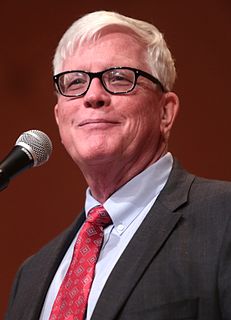A Quote by Rebecca MacKinnon
When Google went into China, there were some people who said they shouldn't compromise at all - that it is very bad for human rights to do so. But there were other people, particularly Chinese people, who said they were glad Google had gone in.
Related Quotes
I wish that Google would realize its own power in the cause of free speech. The debate has been often held about Google's role in acceding to the Chinese government's demands to censor search results. Google says that it is better to have a hampered internet than no internet at all. I believe that if the Chinese people were threatened with no Google, they might even rise up and demand free speech - free search and links - from their regime. Google lives and profits by free speech and must use its considerable power to become a better guardian of it.
It's easier to keep your stuff then it is to expose it, because some people don't get it. At the cross, at the feet of Jesus, there were some people who said, "Good! I'm glad that you're dead." Then there were some that were crying and saying, "Why are you doing this to this innocent man?" It is not easy to do.
He said that people who loved [animals] to excess were capable of the worst cruelties toward human beings. He said that dogs were not loyal but servile, that cats were opportunists and traitors, that peacocks were heralds of death, that macaws were simply decorative annoyances, that rabbits fomented greed, that monkeys carried the fever of lust, and that roosters were damned because they had been complicit in the three denials of Christ.
I have seen several deaths, too many deaths in my life, and they were all different. Each one was different. It didn't seem to be necessarily connected with the life of the person. Some people that were not particularly developed or outstanding or spiritual died very easily. Some other people were on a very high level and had a difficult time in dying.
I had said that Le Guin's worlds were real because her people were so real, and he said yes, but the people were so real because they were the people the worlds would have produced. If you put Ged to grow up on Anarres or Shevek in Earthsea, they would be the same people, the backgrounds made the people, which of course you see all the time in mainstream fiction, but it's rare in SF.
Well, Led Zeppelin IV! That's it really. I'll tell you why the album had no title - because we were so fed up with the reactions to the third album, that people couldn't understand why that record wasn't a direct continuation of the second album. And then people said we were a hype and all, which was the furthest thing from what we were. So we just said, `let's put out an album with no title at all!' That way, either people like it or they don't... but we still got bad reviews!
I learned a lot about my parents, who were both teachers. I had known that my parents were very strongly in favor of education. I had known that they had an impact on a lot of people, but people came out of the woodwork who have said, "You know, without your father, I would never have gone to college," very successful people. And so I learned how widespread their educational evangelism really was.
[Some of the people I'd met] were wonderful people as human beings, and some people were more difficult. I could not see a correlation between their particular genius in playing chess and music and mathematics, etc. ... with human qualities. Some were really good, wonderful people, and some were difficult characters, but there was no clear correlation. But when I met some spiritual masters, [I thought that] there had to be a correlation, and it turned out to be true.
I think that the exchange is very important. Before I did the exhibition in Shanghai, I was a judge for the John Moores Painting Prize and that was very interesting for me, because some of the judges are Chinese and some are British, and we look at the work together. It was fascinating that most of the time we were in complete agreement, but some of the time we were not. People send their works from all over China. For a foreigner, this gave me a very good picture about what is happening in China and its art today.
I've often said that there's no one thing that I do or have done that is particularly unique. There have been a lot of other authors who were in the military. There have been a few others who were pilots. There have certainly been a lot of other people who were in politics or served congressional staffs.
Take a look at the way that Trump has described some of the foreign countries that we deal with - some that are allies and some that are not. China is one example. He said they were currency manipulators, but after he sat down with President Xi and had a piece of chocolate cake, he then said they were no longer currency manipulators.
Donald Trump actually won a lot of people. We've got to give the president-elect his due. He was a tractor beam for the disappointed. He said to the people who were disappointed with the president on Obamacare, "Come to me." He said to the people who were disappointed with trade, "Come to me." He said to the people who were disappointed with the Supreme Court, "Come to me." And he did run a campaign of bringing in the disappointed. And to the people who may be disappointed with their own lives and where they are. And they have a person to speak for them.
































